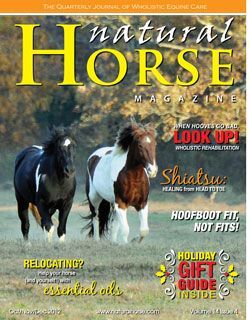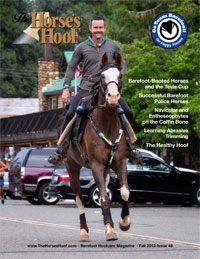QUESTION:
My horse colics frequently with the change in the seasons and weather. What can I do to help him?
ANSWER:
Horse-Advice.com has a great article with regard to HOMEOPATHICS . I’ve copied and posted below:
Equine Homeopathic remedies for a Horse with Colic
http://www.equi-therapy.net/equi-therapy/homeopathy/homeopathic-colic-remedies-horses.shtmlEquine Colic can be an extremely serious, life threatening, emergency for horses. Sometimes surgery is necessary to save the horse?s life. It is the number 1 killer of horses – do not take any chances with treatment or remedies – it can be very difficult to tell the mild cases of colic from the potentially serious ones in the early stages.
It is very important to get a correct and fast diagnosis from a vet –
but until professional help arrives you can help your horse with oral homeopathy, a non-toxic, fast-acting, holistic approach to relieve pain and spasm.Give the remedy that is the closest match to the horse’s symptoms.
If you see any improvement within 10-15 minutes you were probably correct in your choice of remedy.
Keep a watch on the your horse and if symptoms worsen give the remedy again.
Many horses and ponies are prone to repeated attacks of mild colic where the triggers are known and recognised.
In these circumstances administering one of the homeopathic remedies available can be very effective and may help where more traditional medicines have failed to help your horse or pony .
Homeopathic medicines can also be given to your horse or pony during aftercare, and to try to prevent future attacks of colic.
Listed below are the most commonly used homeopathic remedies for horses with colic, with a brief description of the types of equine colic they are used for.
Aconite (Aconitum Napellus – Monkshood)
Aconite is a good homeopathic remedy to use if the horse’s colic symptoms were triggered by fear or anguish caused by fright.
Aconite works best in the early stages of equine colic.
A horse that has a rapid pulse, sudden high fever and is very restless and fearful indicates the use of Aconite to help relieve symptoms.
Arsenicum Album (White Arsenic)
A colicky horse that needs Arsenicum is anxious, restless, and frequently gets up and down changing position. His symptoms are generally worse from 11:00 pm to 3:00 am. He will have dark watery, possibly bloody, foul smelling diarrhoea.He may be thirsty but will only take small, but frequent, amounts of water.
Give one dose every three hours for pain, diarrhoea and restlessness.
Belladonna (Deadly nightshade – Atropa belladonna)
Belladonna is useful in colic when the onset of symptoms is sudden and violent.A horse that can benefit from Belladonna homeopathic remedies will usually be quite hot, with a dry mouth and eyes that are glazed and dilated. Other indications for this remedy include violent mental symptoms, being highly excitable.striking, biting, kicking and increased sensitiveness to touch, light and noise.
Chamomilla
Chamomilla is a homeopathic remedy for a horse that is suffering from excessive flatulence during colic.Angry behavior, kicking, grinding of teeth and screaming or green diarrhoea smelling like bad eggs may also be indications that Chamomilla could be helpul.
Chamomilla may be a suitable remedy for a horse that suffers with colic at sunrise and/or springtime.
Do not administer Chamomilla if the horse is constipated.
Carbo Vegatabilis
Carbo Vegatabilis is a remedy for a horse that has collapsed and is very weak, with marked exhaustion or in shock. The mucous membranes of the mouth, vagina, anus skin or gums may have a bluish tinge. There may be bloating or excessive flatulence and shallow breathing.If improvement is seen with this remedy, another remedy may be needed once the state of extreme weakness is overcome.
Carbo Vegatabilis is sometimes useful when a horse has overindulged.
Colchicum
Colchicum is a homeopathic remedy for very noisy, gassy colic with frequent spasms where the belly is distended and gurgling gut sounds are quite audible, possibly due to over indulgence in grass or other greens.The horse may try to kick his belly with his hind legs but mostly prefers to stand still.Other indications for using Colchicum are where the abdomen hot to touch and the horse becomes constipated.
Colocynthis
Colocynthis is the first choice as a homeopathy treatment for colic in a horse when the cause is unknown and the horse wants to lie down or roll.Another indiction for the use of Colocynthis is where the horse’s pain appears to come and go in intervals with sudden and violent cramping pains
Magnesia Phosphorica
Signs that indicatethe use of Magnesia Phosphorica for treatment of colic include twitching eyelids, muscles and extremities, swollen stomach and the horse kicking at his abdomen.When walking and keeping the horse warm relieves a horse where Magnesia Phosphorica may prove to be an effective remedy
Nux vomica
Nux vomica will often help increase intestinal mobility during a bout of colic wwith bowel blockage and severe spasmodic contractions.Dosage: Use a 6c potency given once every 10 minutes for up to 4 doses. If your horse seems to be having some cramping you can alternate Nux Vomica can be alternated with chamomilla 30c where the horse is suffering from cramping.
NOTE: I actually feel that when a HEALTHY horse is acutely afflicted by colic or trauma or other situation where the vital force has been ‘whacked’ out of balance that ‘whacking it back into balance’ is the answer with a higher potency of remedy than what the above article states. Either 30c – administer every 10 mins. for up to 4 doses and if no change then change remedy to a more suited selection. OR … give ONE DOSE ONLY of 200c potency or higher. NO more. In any case, homeopathic remedies will NOT cause any ill-effects and worse case is they do absolutely nothing for the individual if the remedy is not carefully matched to the unique symptoms the individual is exhibiting.
The information presented by Traininghorses-naturally.com is not intended to replace your veterinarian’s advice or prescribed medications, but only to suggest additional options you may want to explore together with your companion’s primary care provider.












This info is so valuable. I am one of those lucky people whose horses have not colicked. And I dread the day if it happens. I’m going to check to make sure these products are easily available where I live so if ever it happens, I won’t have to look for them. Thanks Gwen!!